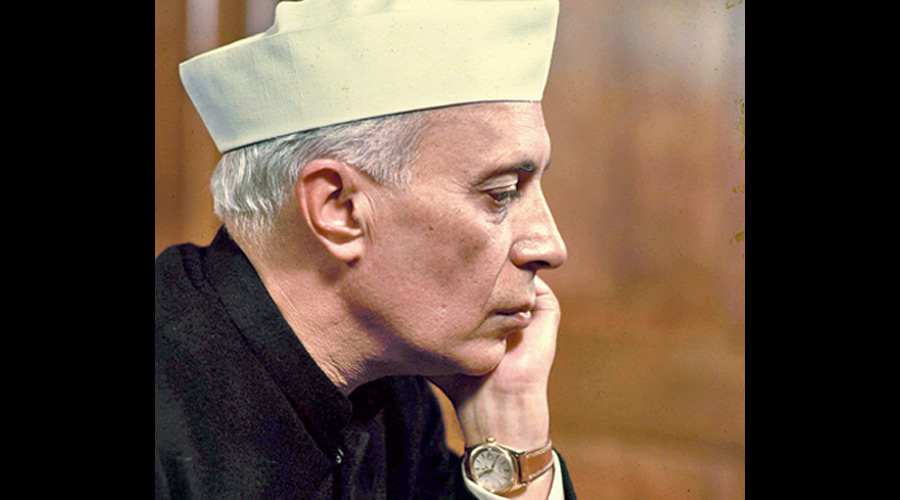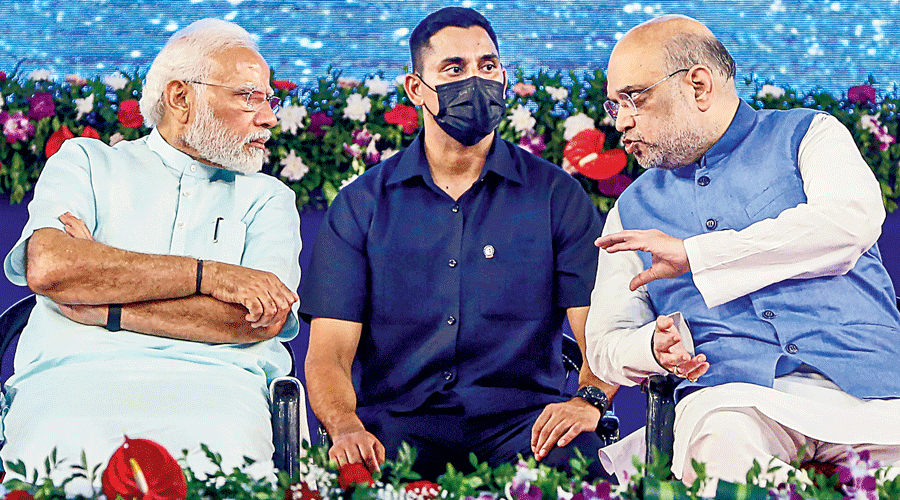The NCERT’s latest review of school textbooks has deleted some content related to caste and religious discrimination, certain references to Jawaharlal Nehru and Mughal emperors, and text that challenged certain stereotypical ideas about Muslims.
The deletions have prompted allegations from academics and rights activists that the textbook preparing authority had toed the ruling party’s ideological line.
The NCERT has on its website termed the exercise a rationalisation of textbook content by a set of experts, but has not named the experts.
Anita Rampal, chairperson of the NCERT’s textbook development committee for primary education, said the review had violated academic integrity as content had been changed without consulting the original advisers and writers.
“It amounts to distortion of content. The names of the writers still go with the books. The NCERT should have consulted the chairpersons while changing the existing books,” Rampal, former dean of the faculty of education, Delhi University, said.
- A paragraph that has been dropped from the book Social and Political Life-I for Class VI said: “A common stereotype about some Muslims is that they are not interested in educating girls and therefore do not send girls to school. However, studies have now shown that poverty amongst Muslims is an important reason why Muslim girls do not attend school or drop out from (sic) school after a few years.”
- A paragraph deleted from the chapter “Diversity and discrimination” in the same book outlined how people engaged in work such as cleaning, washing, cutting hair and picking garbage are seen as dirty and “impure”.
“Caste rules were set which did not allow the so-called ‘untouchables’ to take on work, other than what they were meant to do,” the deleted paragraph said.
“For example, some groups were forced to pick garbage and remove dead animals from the village. But they were not allowed to enter the homes of the upper castes or take water from the village well or even enter temples. Their children could not sit next to children from other castes in schools. Thus upper castes acted in ways which did not give the so-called untouchables the same rights as they enjoyed.”
- Another casualty in the same book is the chapter “Key elements of a democratic government” that covered popular participation, conflict resolution, equality and justice.
- The book Social and Political Life-II for Class VII starts with the chapter “Equality in Indian democracy”. The previous edition introduced the characters Kanta, a domestic help, Omprakash Valmiki, a Dalit writer, and the Ansari family who experienced discrimination over poverty, caste and religion, respectively. The revised book has dropped these characters.
Ashok Bharti, chairperson of the National Confederation of Dalit and Adivasi Organisations, said people who were part of the NCERT review committee appeared to harbour feelings of guilt about historical facts.
“Instead of addressing their guilt, they are removing the instances of casteism, thereby trying to hide their paap (sin),” Bharti said.
“Historical truth should not be tampered with. There are innumerable books that state these inconvenient truths. These attempts (deletion of textbook content) will not hide inhuman deeds and historical facts.”
Bharti alleged that the deletions had been carried out on ideological lines and at the instance of the government.
Rampal echoed the charge. “Textbooks are developed with care to ensure the concept is explained well through examples and anecdotes. You cannot drop a line from here or a paragraph from there just because they don’t fit into your ideological perspective,” she said.
“A review can be done in a pedagogical way. But you are doing it pointedly. You are giving an idea to children that one can throw in or throw out any sentence or paragraph from a textbook. This creates anxiety and deep distrust among the learners and teachers towards textbooks.”
She added: “Academic ethics and transparency demand that the NCERT reveal the names of the experts who made these changes.”
- The chapter Ashoka, the emperor who gave up war” in the book Our Pasts-I for Class VI carries a box (inset) on Ashoka’ message, from which a reference to Nehru has been erased.
The deleted line went: “Pandit Jawaharlal Nehru, the first Prime Minister of India, wrote: ‘His edicts (instructions) still speak to us in a language we can understand and we can still learn much from them’.”
- A few paragraphs on Prophet Mohammed have been deleted from the chapter New empire and kingdoms in the same book. One of the deleted sentences read: “Like Christianity, Islam was a religion that laid stress on the equality and unity of all before Allah.”
- Certain introductory content on the Mughal emperors Babur, Humayun, Akbar, Jahangir, Shah Jahan and Aurangzeb has been dropped from the book Our Pasts-II for Class VII.
- A box has been dropped from the chapter “Confronting marginalisation” in the book Social and Political Life-III for Class VIII.
The box said: “The term Dalit which means ‘broken’ is used deliberately and actively by groups to highlight the centuries of discrimination they have experienced within the caste system.”
- The chapter Weavers, iron smelters and factory owners, on crafts and industries under British rule, has been dropped from the book Our Pasts-III for Class VIII.
“Weavers often belonged to communities that specialised in weaving. Their skills were passed on from one generation to the next. The tanti weavers of Bengal, the julahas or momin weavers of north India, sale and kaikollar and devangs of South India are some of the communities famous for weaving,” a paragraph in the chapter said.
J.S. Rajput, who was NCERT director when the Atal Bihari Vajpayee government was in power, said that social science content in textbooks had for decades reflected ideological bias. He said that Left intellectuals had begun the trend, with Congress-led governments supporting them.
“History and social science textbooks, particularly, have been biased and ideologically oriented for a long time. They deserve to be corrected on the basis of new facts, available scientific advances and unbiased interpretation,” Rajput said.
He said history textbooks used to dwell at length on the Mughals while containing little on the histories of the northeastern states or south India.
“I have no hesitation in stating that the government had been dependent on the Left parties for support and survival since the 1960s and allowed the Leftists to take over academic institutions and bring about attitudinal changes in young and impressionable minds,” he said.
An email sent to NCERT director Dinesh Prasad Saklani seeking his comments on the charge of ideologically driven content cleansing remains unanswered.
On its website, the NCERT says the pandemic had made it imperative to reduce the content load on students.
While doing the rationalisation, the NCERT said, it had removed content which overlapped with that included in textbooks for other subjects or lower or higher classes, and content that it deemed irrelevant in today’s context.












